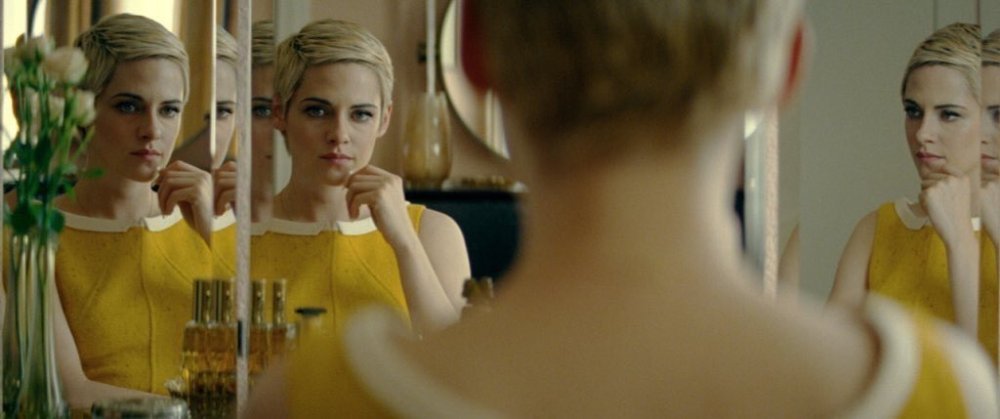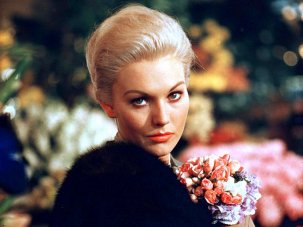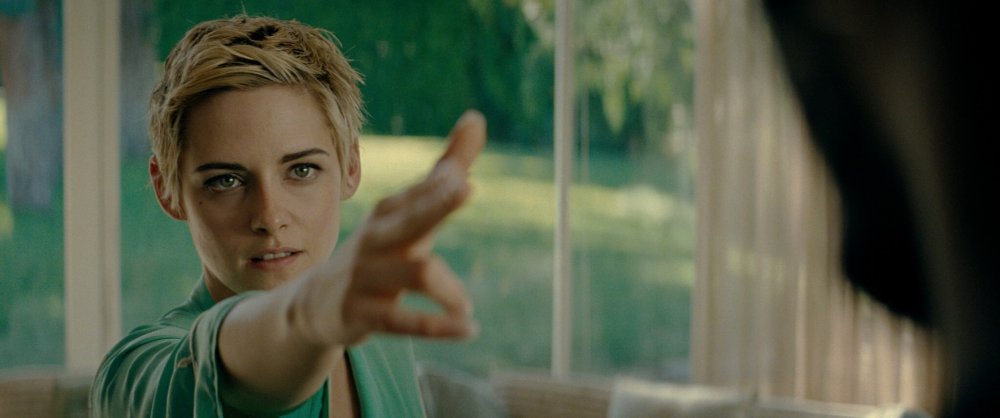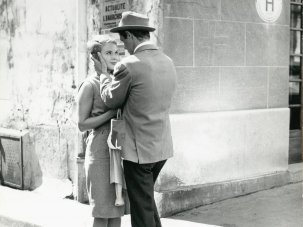All biopics are to some degree disingenuous. Misrepresentation starts with the mismatch of faces between the subject and the actor portraying them, and goes on with the ways that true-life stories are sliced or bent to the shape of a successful box-office experience. That Kristen Stewart looks nothing like Jean Seberg matters, but no more or less than it does in any other biopic. Stewart is a contemporary gamine just as Seberg was seen to be one in her era, and that is thought to be enough – she wears the blonde Seberg crop spectacularly well and is as compelling a presence on screen as ever.
USA/United Kingdom 2019
Certificate 15 102m 24s
Director Benedict Andrews
Cast
Jean Seberg Kristen Stewart
Linette Margaret Qualley
Hakim Jamal Anthony Mackie
Jack Solomon Jack O’Connell
Romain Gary Yvan Attal
[2.35 : 1]
UK release date 10 January 2020
Distributor Universal Pictures International UK & Eire
sebergmovie.co.uk
► Trailer
Stewart undoubtedly found an affinity with the tragic life story of the earlier film actress, who wore her conscience on her sleeve and is most famous for a scene that we never see in this film (either re-enacted or played from the original): Seberg as Patricia in Jean-Luc Godard’s Breathless, selling the New York Herald Tribune on the streets of Paris while walking and talking with Jean-Paul Belmondo’s boy gangster, a sequence brimming with youthful optimism and grace. For this is not a film that wants to dwell on optimism and grace and neither should it. Seberg’s real biography is a gruelling story of multiple exploitations.
Seberg the film rather luxuriates in images of Stewart suffering mental distress while immaculately dressed in 1960s chic, while the cause of her anguish is loaded exclusively on to the US government. It begins with Jean leaving the Parisian home she shares with her husband Romain Gary (Yvan Attal), while outside the événements of 1968 rage. In the first-class compartment of the plane to the US, she encounters Black Panther agitator Hakim Jamal (Anthony Mackie) and on landing decides to pose for photos with the Panther reception party, raising her clenched fist. This, a sexual affair with Jamal, and her willingness to contribute money to the cause, soon earn Seberg the surveillance attention of FBI agents, one of whom, Jack Solomon (Jack O’Connell), will act as the film’s conscience as the feds go out of their way to bug her and defame her, thereby driving her to a mental breakdown.

It’s a neat enough pairing of parallel gazer and gazed-upon narratives, with the useful central villainy of the US government and the righteous cause of the unjust war in America between black and white, but this neatness does not do the real Seberg justice. Both Romain Gary and Hakim Jamal are portrayed with sympathy, whereas most accounts say that they both treated Seberg appallingly. The young actress found herself in the clutches of many exploitative men in her career, not least Otto Preminger, who found her at the age of 17 in her hometown of Bloomington, Indiana, via a nationwide talent-scouting for a young girl to star in his film Saint Joan. We get no sense of how naive and unworldly Seberg was at that time, but we do see the moment when the burning at the stake goes wrong and she is scorched.
For director Benedict Andrews (who made the 2016 Rooney Mara-starring psychological drama Una, adapted from a stage play about the long-term consequences of child abuse) and screenwriters Joe Shrapnel and Anna Waterhouse, the main problem is how to give Seberg agency when her life was lived so much at the behest of other people. Other affairs perhaps contributory to her breakdown go unmentioned here too, maybe for legal reasons.
What Seberg demonstrates to me is that the real Jean Seberg story is too complex to psychologise in a single feature film. At one point, Jack – who has become rather smitten by the woman he’s been listening to and photographing – has a solo screening of the ending of Breathless. We see the final shot of Seberg’s Patricia from the viewpoint of the dying Belmondo, where she imitates him imitating Humphrey Bogart by rubbing the edge of her thumb across her lips. Belmondo has just called her “dégueulasse”. She asks the cops, “Qu’est-ce que c’est, ‘dégueulasse’?” This film has it as ‘bitch’, the original film’s English subtitles as ‘louse’. Male directors of her time liked Seberg for her enigmatic beauty, and then heaped insults on her. Seberg doesn’t do that but it does try to turn her into a different kind of Saint Joan.
—
Update (8 January 2020): this review has been revised and extended since it was first published from the Venice Film Festival.
-
The 100 Greatest Films of All Time 2012

In our biggest ever film critics’ poll, the list of best movies ever made has a new top film, ending the 50-year reign of Citizen Kane.
Wednesday 1 August 2012
-
The best films now on UK streaming services

Looking for the best new cinema releases available on British VOD platforms? Here’s our guide to how to keep up with the latest movies while you’re...
-
The Digital Edition and Archive quick link
Log in here to your digital edition and archive subscription, take a look at the packages on offer and buy a subscription.








